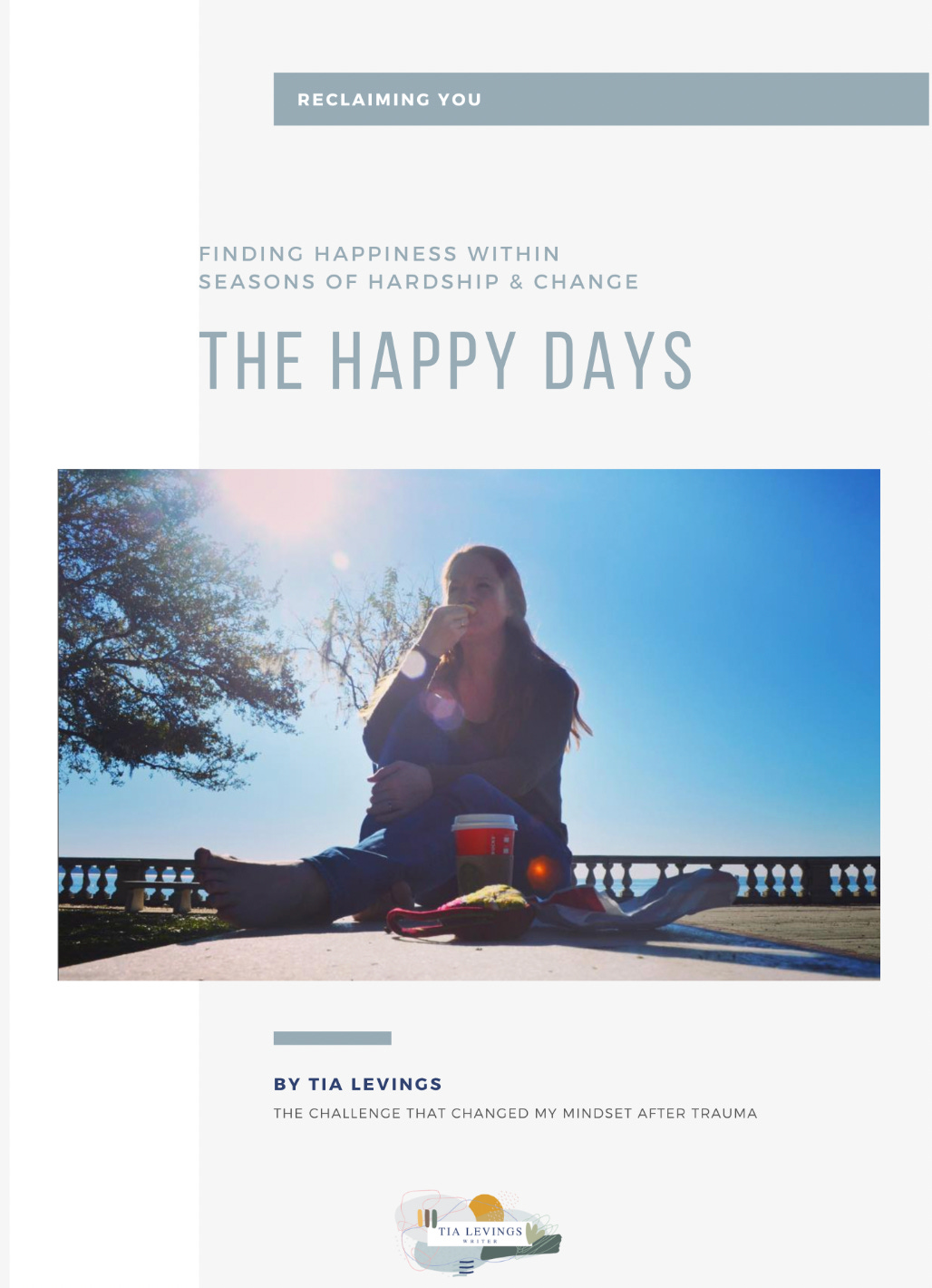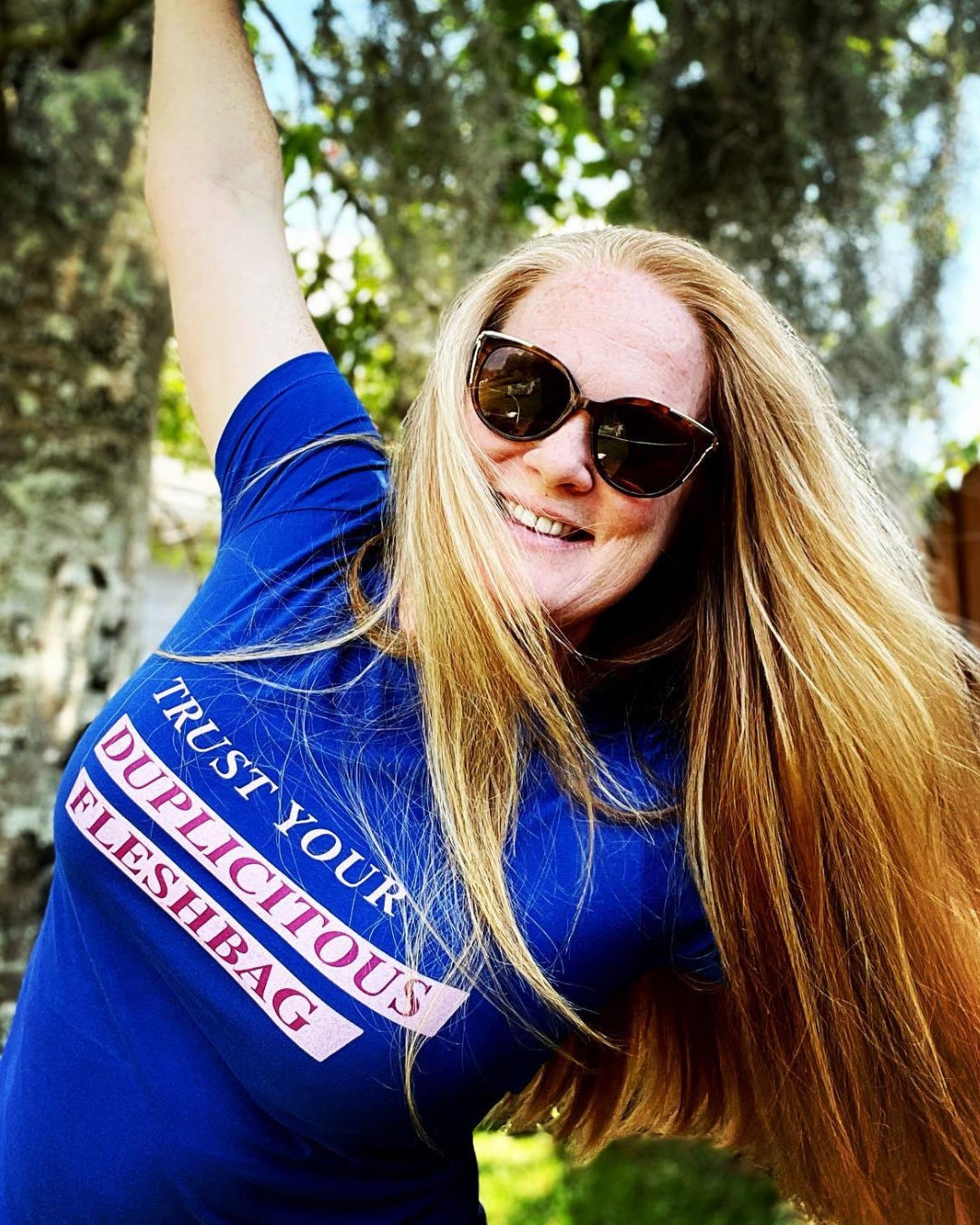Deconstructing Fundamentalism Doesn't Mean You Won't Have Binaries
Always/never still has a place in my world. Here's why.
As we deconstruct rigid extremes, are we over-villifying the need for a firm position? Are we consciously or subconsciously shaming abolutes?
My quick definition of fundamentalism is “ideas over people.” This means that the pursuit of ideological purity is more important than the humans involved, including their wants, needs, and ability to achieve that purity.
Fundamentalism is a formula that promises a lofty ideal. It’s usually something we want: a happy family, a healthy life, a solid marriage, an eternity in heaven with God. The formula crafts a lifestyle; the lifestyle crafts communities. We find belonging among people pursuing the same ideals.
Fundamentalism feels safe. Following rules is easier than thinking freely or critically. It’s much more reassuring than trial and error, and when combined with religious doctrine that teaches error is sin that will land you in eternal flames, being right, obedient, uniform, and heaven-bound is as safe as safe can be.
This is why fundamentalist formulas are attractive in chaotic timelines and environments. Conforming might protect us from abuse. Belonging might shelter us from danger. High-control personalities threaten abuse and danger as an electrified fence of fear to maintain our attention. They create more chaos to drive our clinging adherence to their system. It’s how they stay in power.
If failure occurs, because humanity has entered the chat through the wants, needs, capacity, anomaly, diversity, or individuality of the beings pursuing the construct of the ideal, the system calls it user error. It’s never the system’s fault. Never a faulty formula. Fundamentalism doesn’t self-examine. Fundamentalist people are not self-aware.
Which leads to a bigger problem. If you’re reading this, you’ve probably left such a system and such personalities, and probably more than once. People who lack self-awareness and who don’t self-examine perpetuate toxic patterns and have sloppy boundaries that are an open gateway to abuse. There’s no accountability, and when things go wrong, it’s never their problem, because it’s all deflected onto the one harmed: user error is to blame. You took it wrong. It’s your background that’s the problem. Your trauma. Your performance of the expectation is at fault, not the expectation or expectant themselves. I call them the “Never Deflectors.”
In therapy, I learned to call them narcissists. Blame shifting and deflection protect a narcissist’s fragile ego and the mask they’ve carefully constructed, maintained by the rules of their system. When someone bucks that system and begins questioning it, or holding them accountable for the real fruit of their formula over what was promised, they dodge, deflect, and rage. Cue the word salad and denials; the over-reactions, the nuclear destruction, rather than admit one flaw in their system.
Read more about what that looks like:
The always/never binaries of a narcissistic person or system are a red flag for extremes and high control. In an effort not to be like them, we can deconstruct fundamentalist ideas and practices and rid ourselves of our own always/never polarities. We can learn to embrace the both/and of plural truths, and learn to avoid rigid extremes of either/or, right/wrong, and this/that. It takes practice, but we can learn to ask, “If that’s true, then what else is true?” and sit in the initial discomfort of holding cumbersome facts and experiences when we’re more accustomed and familiar to a narrow, soothing, “right way.”
The discovery of the gray area, a spectrum of bright colors, different approaches, to each their own freedom…. This is all liberating. We’re free! We’re open!
What experience is teaching me, though, is that there’s such a thing as too open. Too lenient. Too open to attack. Being an inclusive, accepting person has sometimes meant that high-control types find shelter with me, not so they can soften and grow in the grace that I offer, but so they can drain my life to feed their own need for control. They mistake kindness for a lack of boundaries, and when they agitate my values and inner drive for justice, they dislike the discovery of my spine.
Something that I think might get lost when deconstructing fundamentalism is that it doesn’t mean there are no binaries.
Sometimes, in fear of repeating old patterns, the pendulum swings the other way, to a mindset without structure, guidance, boundaries, ethics, or integrity. It’s all loosey-goosey. And in our natural search for safety, or hunted by predators, we’re vulnerable to falling into another high-control relationship with severe power imbalances, gaslighting, abuse, and rules.
It’s pretty easy to understand how this happens, and there’s no shame in it. The swing is natural and life-giving. The ability to accept plural truths shatters rigid fundamentalism; it’s a breakthrough, which usually feels great. New, exciting, and full of possibility. As the ability to hold complexity grows, we discover layers and nuance that expand our understanding of the world. We’re filled with wonder and curiosity. Happy, maybe for the first time in longer than we can remember.
Happy people often let their guard down because the world around them feels less dangerous. We can breathe, relax, and see life in vivid color again. If you’re like me, leaving fundamentalism and expanding my humanity also led to feeling more like myself. Like my trueness could finally come out of hiding and laugh at the juicy, gorgeous diversity of this extraordinary life.
When I began deconstructing, I knew I wanted to live in closer alignment with my values, and to avoid becoming rigid, static, unmovable, incurious, and dull. This is why I rejected labels or “reconstructing” a new system or community that required belief for belonging.
For a long time, this meant removing binaries, or at least questioning them. I needed to be curious, to excavate why the rule or line was drawn, what was the result of it, and to ask if it was true, as well as what else was true. This led to a more flexible stance that allowed for diverse perspectives. I challenged polarities. Avoided prescriptive voices, including within myself.
It led me to spend time with people who did the same, until I began to observe another kind of predatory behavior that thrives in environments without structure and boundaries in recovery, every bit as much as high-control churches that denied boundaries to their members.
I learned that there are people who mask themselves as safe and curious, but who exhibit patterns of exploitation and unethical behavior.
I learned there are grifters, eager to exploit trauma as a “market,” using religious and capitalistic business models, stepping beyond supervision or accountability measures.
I learned that shaming all binaries is as destructive as shaming complexity, the gray area, and the middle ground.
Most of the time, I’ve found health in the both/and.
I’ve developed resilience, intuition, and critical thinking skills to help me navigate the plurality of people, beliefs, and situations.
But there are a few binaries that define me and my values, that offer structure and bones to my soft, fluid body. Integrity, ethics, values.
For example:
I will not ever again give my loyalty to a congregation or group that denies another’s humanity.
I will not endorse anyone who violates children.
I’m not about tearing people down for who they are or who they love.
I won’t spend time in spaces that belittle or dismiss abuse survivors.
I will always default to the one who is harmed over the one who has harmed them.
How do I know I won’t do this? How did these become my values? Experience.
I’ve done all of these things before. I’ve dished and hashed with mean girls. I’ve voted for conservatives who took others’ rights away. I’ve participated in congregations that denied the humanity of anyone not like us. I know being that way is not for me because I learned about the harm done, and the real fruit of the systems and relationships I was a part of. I left them. I self-examined, apologized from new awareness, and committed to “Never” being that person again. “I absolutely will not not” condone these behaviors, in myself or others, even if speaking in this sort of absolute language makes me uncool with others who are deconstructing.
While I am capable of softening these “binaries” to understand the context that creates these situations, and hold the humanity of those involved, even the abusers and accused, and can examine intellectually how these behaviors manifest in our society, I can’t see a possibility where I would ever condone or participate in either, ever again.
The fruit of holding these boundaries is integrity. Trust and a calm, quiet conscience. And, a plan of action when confronted with complicated situations that call for a line to be drawn. Deconstruction allowed my spine to bend. Character means I can also stand.
What I’ve learned is that it’s okay to have a few hard stops. Walls hold up your house. Doors with locks protect what’s inside. This doesn’t make you a fundamentalist for another cause. It means you’re not flimsy, that others know who you are, no mask or performance needed. You aren’t perfect, but don’t need to announce your imperfection, because people trust your reputation for self-examination and accountability. They aren’t expecting perfection; they’re expecting growth.
Essential standards enhance safety; they don’t reduce it.
Deconstruction will break you down to the essentials. To your truths. This isn’t a damaged knee-jerk reaction; it’s an intentional, nuanced response to a complex, wonderful life.
Fundie Baby Voice Isn’t What We Called It
Trump Conservative Women Think They’re Mocked for Their Appearance and Beliefs
Read more of my personal experiences as a trad wife here.
Book Office Hours with me here.








A "Hell Yes!" to everything. Thank you for putting down the words of my heart, mind and soul.
This is such a grounded reflection. Deconstruction isn’t about losing all structure—it’s about keeping the boundaries that protect what matters. Not all binaries are bad. Some are born of wisdom. Knowing your “never again” isn’t rigidity, it’s integrity.